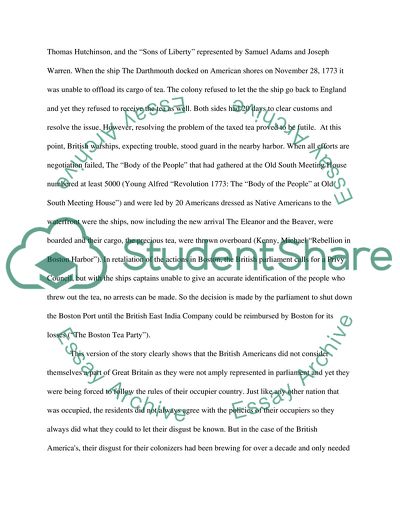Cite this document
(“Boston Tea Party Research Paper Example | Topics and Well Written Essays - 1500 words”, n.d.)
Retrieved from https://studentshare.org/history/1639703-boston-tea-party
Retrieved from https://studentshare.org/history/1639703-boston-tea-party
(Boston Tea Party Research Paper Example | Topics and Well Written Essays - 1500 Words)
https://studentshare.org/history/1639703-boston-tea-party.
https://studentshare.org/history/1639703-boston-tea-party.
“Boston Tea Party Research Paper Example | Topics and Well Written Essays - 1500 Words”, n.d. https://studentshare.org/history/1639703-boston-tea-party.


